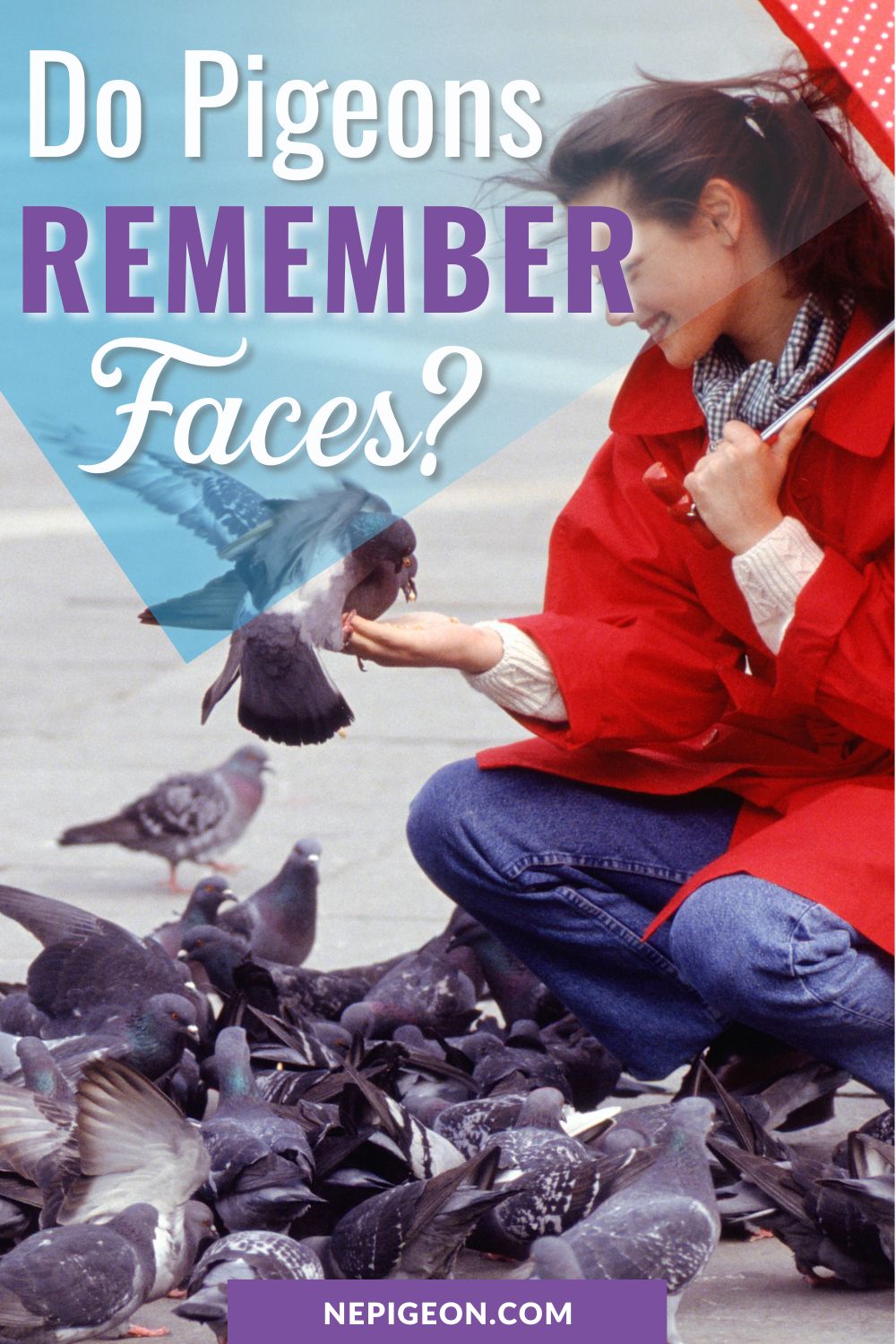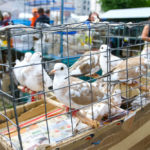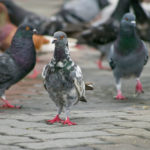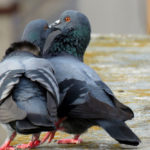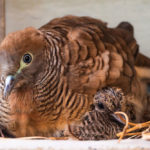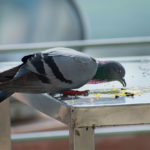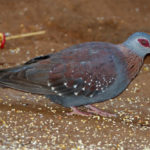If you feed a pigeon, the next time it sees you, it may come up to you as if to say hello. If you shoo a pigeon away, the next time it crosses paths with you, it will walk or fly away.
Pigeons remember human faces. They aren’t fooled by a change of clothes. Pigeons know who’s hasty and who’s nice, and they can even distinguish between people who have similar skin tones and who wear each other’s clothes.
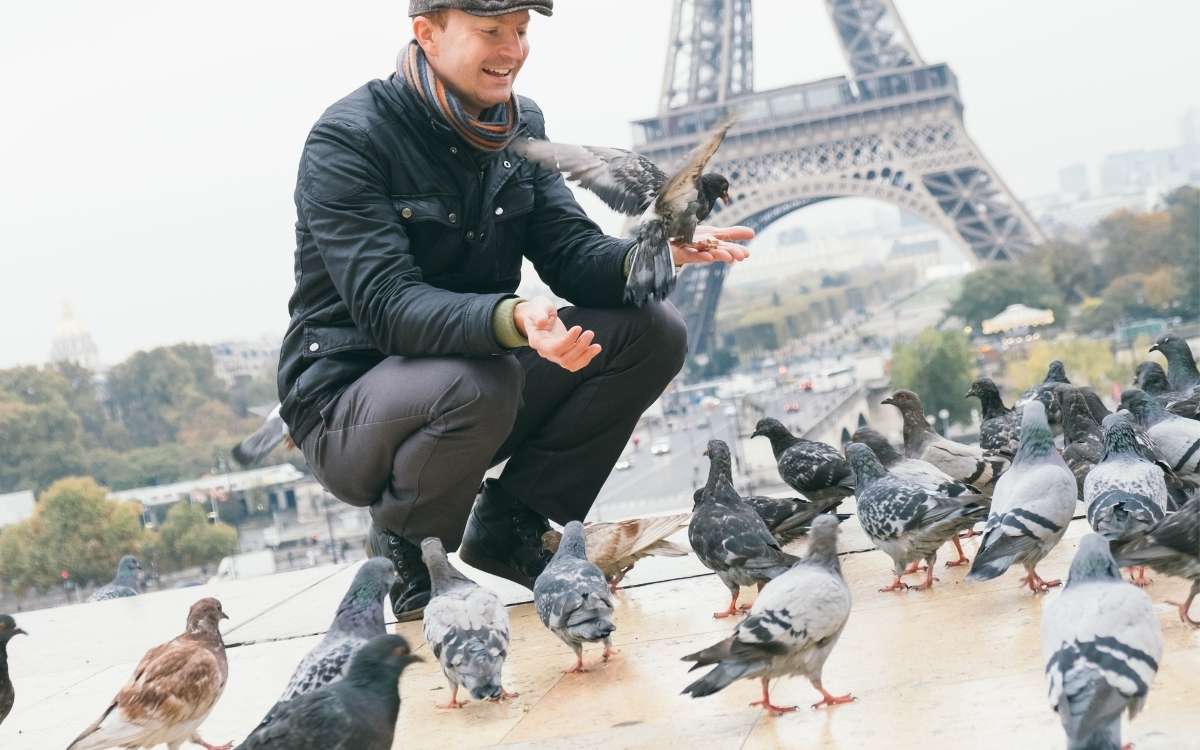
A Cognitive Biologist Explains How Untrained Pigeons Remember Human Faces
Scientist Dalila Bovet of the University of Paris Ouest Nanterre La Défense and her colleagues devised an experiment to learn about how untrained feral pigeons perceive their world.
At a park in the city center of Paris, two of Dr. Bovet’s colleagues fed pigeons that had never been handled and were clearly not tame. They wore lab coats of different colors.
One research associate put out food for the pigeons and didn’t pay a lot of attention as they ate it. The other research associate put out food on the ground, but then shooed the pigeons away.
The two research scientists switched lab coats and went back to the park. They put out food for the pigeons again. On their second visit, they feigned indifference to whether the pigeons ate the food or not.
The pigeons flocked around the researcher who had let them eat in peace the first time, and stayed away from the researcher who had initially been hostile. The researcher made repeated visits to the park to feed the pigeons, showing no interest in whether they ate the food.
The pigeons reacted to the two researchers the same way every time. They continued to avoid the researcher who had initially been hostile towards them.
“It is highly likely that the pigeons in our experiment recognized our researchers by their faces, since both researchers were female and about the same build, age, and skin color,” Dr. Bovet told the annual conference of the Society for Experimental Biology Annual Conference in Glasgow.
“Interestingly, the feral pigeons, without any training, spontaneously recognized relevant characteristics of our researchers (probably their facial traits), instead of the lab coats that covered 90 percent of their bodies,” added Dr. Bovet.
Why Would Feral Pigeons Have an Innate Ability to Remember Human Faces?
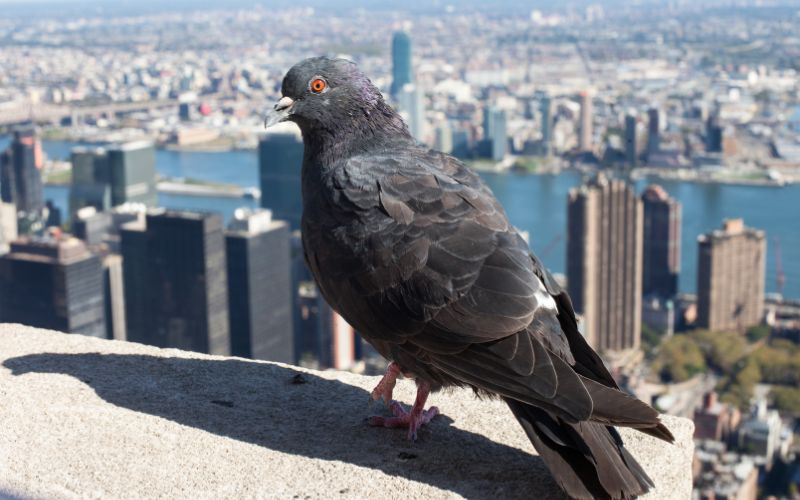
The researchers in Paris believe that genes for facial recognition may have emerged over thousands of years of the close association between pigeons and people. Pigeons have become a commensal organism, taking advantage of their relationship with humans, usually living in urban areas and seldom living in the wild.
But pigeons aren’t limited to looking at faces to be able to recognize people.
Scientists in the Department of Psychology of Keio University in Japan kept pigeons in cages in their lab. They fed their pigeons, talked to them, and interacted with them as pets. The pigeons got to know what humans sound like.
But the researchers did not expose their pigeons to Japanese monkeys, also known as macaques.
The researchers designed an experiment in which the pigeons received a food reward for telling the difference between a human face and the face of a macaque.
Then the researchers tested a second group of pigeons by showing them both photos and sound recordings of people and monkeys. Adding an auditory cue helped pigeons distinguish between people and macaques.
When the researchers showed the pigeons a sequence of pictures in which a monkey’s face morphed into a human face, the birds were able to use sound to choose whether the photo was of a person or of a monkey.
Humans have a region of the brain called the polymodal association area that integrates information from sight and sound. People can instantly recognize a familiar person by either sight or sound. The Keio University researchers showed that pigeons have this ability, too.
When pigeons have seen or heard you before, they remember how you treated them.
Oxford University researchers have found that hand-raised (that is, not feral) birds can get even more useful information from observing their human handlers. When a handler points in the direction of hidden food, the bird flies in that direction to look for it.
When a human looks back and forth at a bird, without pointing at a dish of hidden food, the bird may deduce that the motion of its handler’s eyes is showing them where to look for a treat.
As far as we know, there aren’t any psychic pigeons. Birds have to be exposed to faces before they remember them.
But it only takes once for a pigeon to form a lasting impression of whether a particular human is a friend or foe, and they remember faces and voices, not just the clothes their handlers are wearing.
What do these findings reveal about how to treat pigeons as pets?
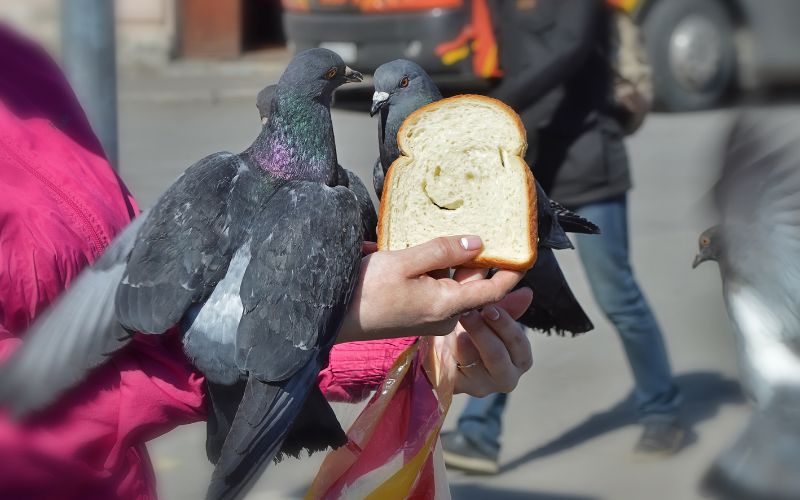
The way to a pigeon’s affection is through its stomach. Putting out food will always get a pigeon’s attention.
However, once you put out food for the pigeons, it is best to let the birds warm up to you without any added encouragement. Pigeons trust humans who are non-threatening.
Since sudden movements toward birds or unexpected sights and sounds of any kind can be threatening to pigeons, it is best to spend most of your time interacting with them quietly and gently. Don’t give your pigeons a reason to avoid you.
Pigeons learn to trust humans through visual examples. You may have to spend several hours with a flock before one brave bird dares to eat from your hand.
Use the occasion to stroke the bird’s breast and speak to it in quiet tones. Once the other pigeons see that interacting with you is safe and results in their being fed, they will also trust you more. They will be easier to handle.
However, it only takes one episode with a boisterous child or one visit from your pet cat to set back your relationship with your pigeons back to the beginning.
Need to take some time away from your pigeons?
Keep them company with your photo. Pigeons recognize people from their photographs and react to the photo in much the same way as they react to you.
But keep your pigeons away from mirrors. Pigeons won’t treat their reflection in the mirror as if it were a different bird. They aren’t entirely sure how to interpret their reflection in the mirror, either.
Pigeons that can see their reflections in a mirror won’t pay as much attention to food, and they may become so fascinated by the mirror that they “forget” to fly away when you open the door to their cage.
